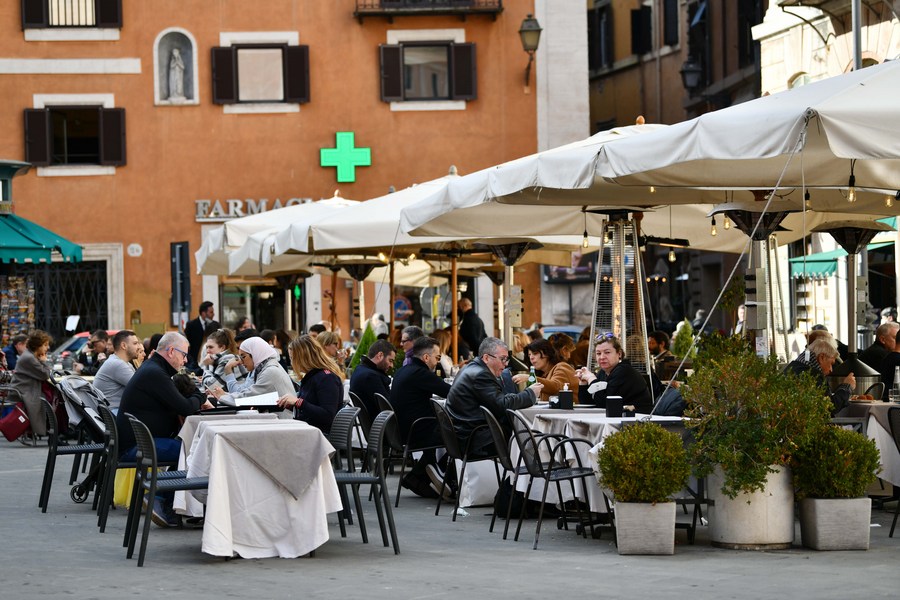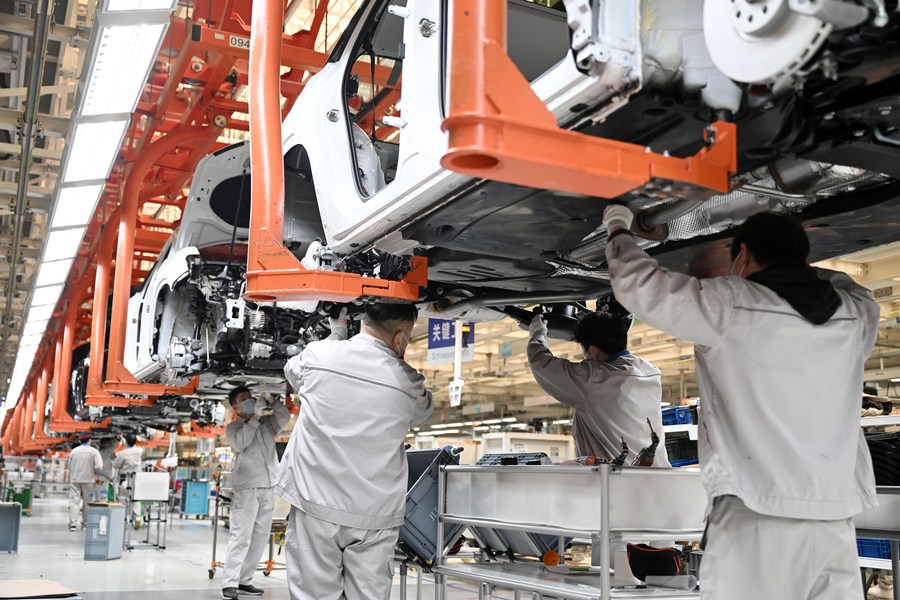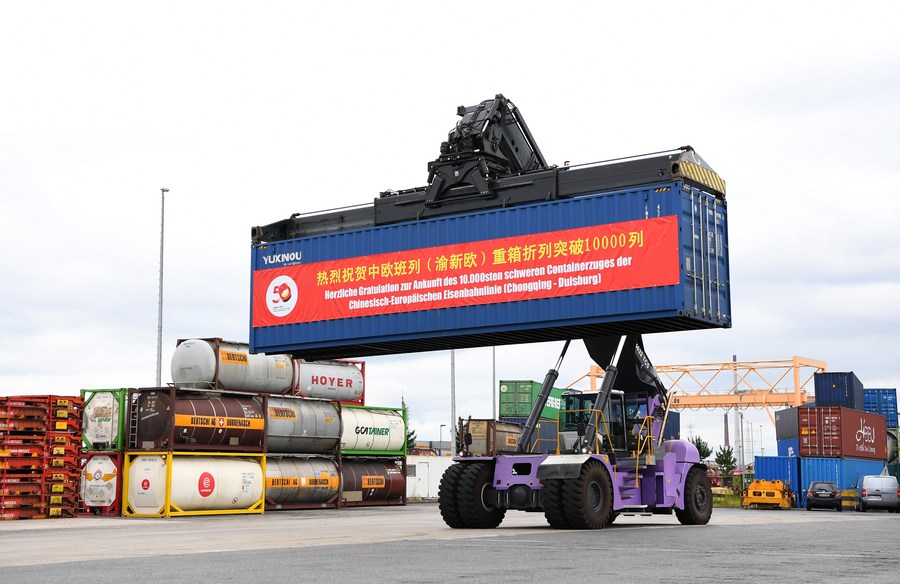Editor’s Note: Giovanni Tria is an Italian economist. He was appointed Minister of Economy and Finance of Italy in the Conte I Cabinet and member of the IMF Board of Governors from June 2018 to September 2019. He served as Director of Center for Economic and international Studies at University of Rome Tor Vergata from 2000 to 2009 and as President of Italian National School of Administration from 2010 to 2016. This is his speech delivered at China’s Development Blueprint and Global Development Opportunities, Sub-forum of the 5th Hongqiao International Economic Forum and Parallel Symposium on Communication of Civilizations and Vitality of Innovation in November 2022. The article reflects the author’s opinions, and not necessarily the views of China Focus.
Today, the great economic regions of the world, whether advanced, emerging or developing, all face huge challenges in terms of growth. Growth which is vital to maintain or create a comfortable standard of living for a world population that in four decades increased from four to eight billion people.
But to understand the issues we face today we need to look back over the centuries at the changing patterns in world geo-economy which shaped the past and will undoubtedly shape the future.
Available forecasts on changes in the world’s geo-economy up until the end of the next decade all converge, despite the difficulties inherent in comparing data on an international scale.
They show a progressive inversion in terms of economic power between what was sometimes called the South of the world, (including China, India, Brazil and Russia plus the other Asian countries, with the exception of Japan) and the so-called North, dominated by what until today we have termed the West (principally Europe and the United States and the Western Offshoots, ie. Canada, Australia, New Zealand).

Some forecasts predict that by 2030 the so-called West will produce just over a third of the world GDP, especially if calculated at the same purchasing power. It means that the rest of the world will produce two-thirds of world GDP.
This is a reversal of the relative economic weights between the two areas of the world compared to the middle of the last century, when it was the countries that we call “West” to produce about 70 percent of world GDP. But it was the point of arrival of a process that also lasted for more than a century, because at the beginning of the previous century, that is in the early nineteenth century, it was the West that did not produce more than 30 percent of global GDP.
So, over the course of two centuries the economic weight ratio between the West and Asia will be reversed twice, and by 2030 the West and Asia will occupy the same relative positions in the world economy as they held in 1820. But, of course, in a much more complex and interconnected world, considering that the world population is eight times higher than that of the beginning of the nineteenth century, with infinitely higher levels of energy and raw materials consumption.
This future of the global geo-economy is by no means certain. The future of the world that we have outlined is only the result of predictions and, as all predictions are subjected to denials due to the breaking of the unexpected and the improbable in history.
In any case, the evolution of the economic scenario forecast for the coming years and decades will probably not be linear. The transition from a century of Western economic domination to the century of prevailing Asian economic strength, predicted by many academics, is unlikely to be “a gala dinner” if left to natural evolution. Ideally, this transition should be negotiated and guided.

If we look back to the century in which the first great shift of the global economic weight in favor of the West matured, that is from the first half of the nineteenth century to the middle of the last century, we see how it was accompanied by two world wars and other tragic historical events.
That is why today, faced with the great new changes underway in the opposite direction, there is no fruitful alternative to dialogue for the pursuit of coordinated policies, and even economists can help build a peaceful world.
The possibility of this process being carried out peacefully also depends on the awareness that the competition for the sharing of the “cake” must come after the cooperation for the growth of the “cake”. Indeed, the change in geo-economic weights does not necessarily mean that areas of the world which, for demographic reasons as well, lose relative weight see their well-being diminishing. The story of the last decades characterized by globalization told us the opposite. The increased well-being of one part of the world, and the reduction of poverty, has not meant the decrease of wealth for the other part.
On the other hand, the fact that the world population is eight times that of the early nineteenth century and has doubled from four to eight billion in recent years certainly poses problems related to what we can call global public goods, that is the world climate, public health, adequate availability of raw materials, energy, nutrition for the world population. These are problems that cannot be addressed without scientific and technological progress, a progress that requires international exchanges of ideas and cooperation and, above all, the global sharing of the scientific results.
But not only is the current world population eight times that of two centuries ago, this population is strongly interconnected, not only through exchanges of goods and services, but through communication technologies that quickly connect ideas, cultures, ways of life. This interconnection, this greater mutual knowledge and therefore greater closeness between the peoples of the world and between their cultures is a powerful factor in strengthening mutual understanding and therefore cooperation. On the other hand, greater proximity can also be a factor that can enhance the perception of inequality, generate misunderstandings and dissatisfaction.
That is why today governing the great changes underway to ensure peaceful transitions is even more important and even more complex. It is therefore a task that requires commitment, responsibility, mutual respect and an awareness of a common destiny. This means that economic, technological and civilizational hegemony is not at stake today, but common destiny is at stake.

This means that dialogue and cooperation between countries must prevail over competition and conflicts, not only in the economic and commercial sphere.
Is that what is happening now? And what is Europe’s current role? The answer to the first question is negative, while it is difficult to answer the second.
The impression is that the spirit of cooperation is backward, and the spirit of competition and confrontation has been strengthened, although the pandemic has made it clear that this is not the most convenient way. But it is certainly not only the economy that determines the course of history. Ideologies, cultures, religions, peoples’ identities and nationalism, as well as the crucial role of individual personalities, are all factors that contribute, with the economy, to determining this course. Then there is the role of the improbable, the “black swan” that changes every prediction.
Today it is difficult to establish a direct connection between the Russian aggression against the Ukraine and the long movements of the change of the geo-economic balances, which if not governed peacefully by politics can generate, as in the past, wars and monsters. Today, the task is to stop the war. But we also know that the path of negotiation, which must sooner or later be there, passes through the mobilization of the global interest to block the war.
Today the global interest is mainly represented by Europe, the United States and China. These are the big economies with global responsibilities, and they must exercise them. I believe that this necessary international cooperation to stop the war would be facilitated if placed in a renewed framework of international relations that looks to the future of the global economy in an approach of cooperative governance and shared rules and not of “decoupling” or of “strategic confrontation”.
We hope that the future that we are facing is not that of economic blocks and fragmented markets, that is a future of less well-being and increasing scarcity for all, a future that can generate a much more dangerous world.